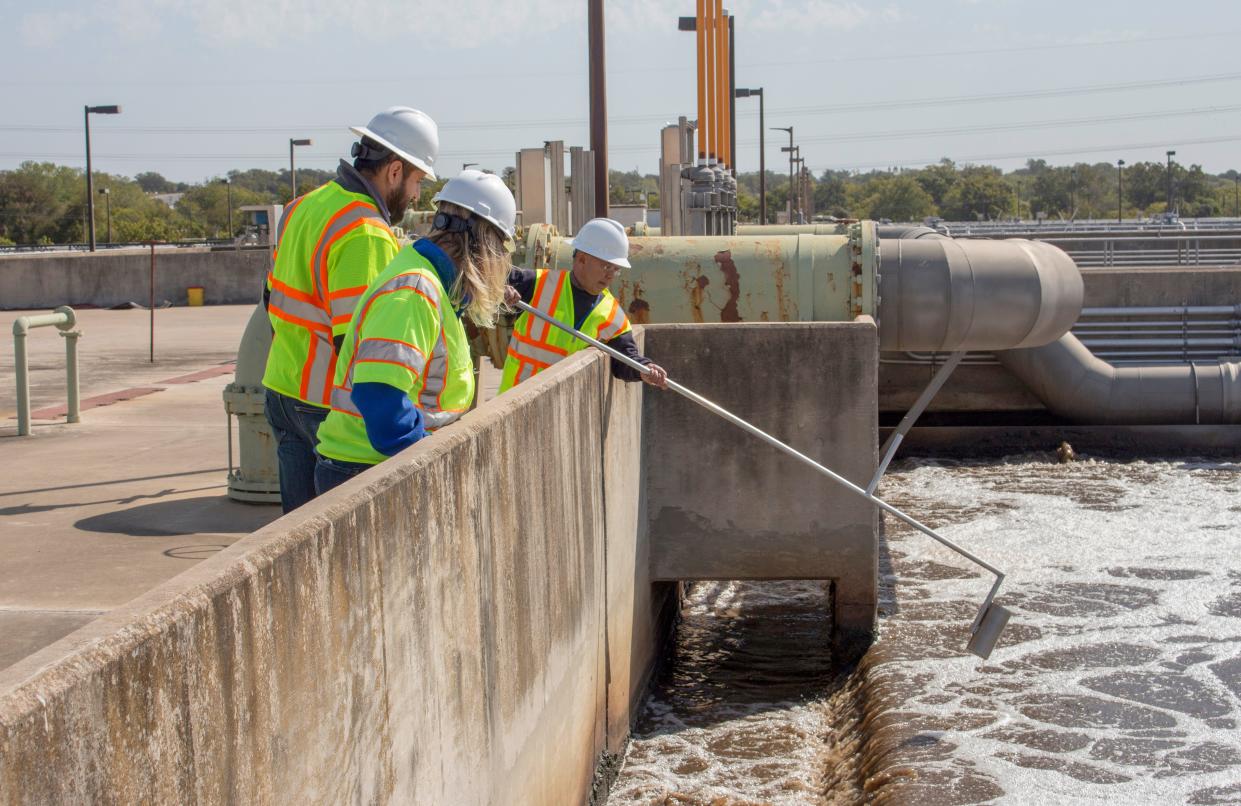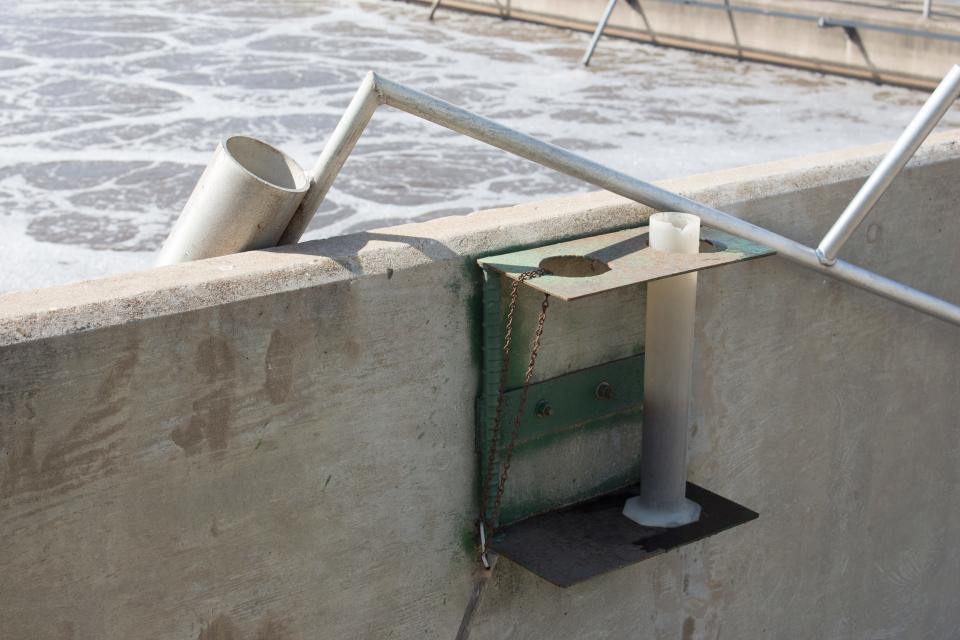Google's sister company is testing Austin's sewage. Here's what they'll do with the data.

Perhaps you didn’t bother going to the doctor, or you got results from a home COVID-19 test that doesn’t get shared with the health department. Maybe you didn’t even feel sick enough to realize you had COVID-19.
It doesn’t matter. Everybody flushes.
Among the technological advances rooted in the pandemic, hundreds of communities, including Austin, participate in routine testing of city sewage to track whether COVID-19 levels are rising or falling, and to see whether new variants are taking off.
Setting aside the obvious ick factor, such testing has the benefit of providing a true picture of what’s happening on a citywide level, because samples from every toilet and drain in Austin make their way to one of the city’s two wastewater treatment plants — both of which participate in twice-weekly COVID-19 testing, paid for by the federal government.
“Wastewater monitoring has become an increasingly useful surveillance tool as people learn to live with COVID-19,” William Malm, an Austin Public Health spokesman, told me.
The results enable Austin Public Health to alert the community when the virus is on the rise — which can prompt people to take voluntary precautions, such as getting booster shots or wearing a mask. This information can also help hospitals anticipate a surge coming their way.
Such testing has great promise beyond COVID-19: The U.S. Centers for Disease Control and Prevention, which runs the National Wastewater Surveillance System, plans to expand tracking to other illnesses, starting soon with the seasonal flu and respiratory syncytial virus, or RSV.
But this testing has also raised questions around privacy, especially now that the CDC has contracted with one of Google’s sister companies, an outfit called Verily, to process the sewage samples from Austin and many other cities.
People who worry about Google — a company that reached a $391.5 million settlement last year with 40 states after improperly gathering users’ location data — naturally wonder what its sister company could possibly want with our sewage.
The CDC, Verily and officials in Austin all assure me that the wastewater testing is done strictly on a communitywide basis, with proper privacy safeguards, and the data are not shared with Google. Here’s what I learned.
Sewage data won’t be traced back to anyone
The South Austin Regional and Walnut Creek Wastewater Treatment Plants receive more than 150 million gallons from more than 1 million customers each day. Twice a week, workers at each plant pull samples from the incoming sewage over the course of a day, then send a vial that’s about half the size of a soda can to the lab for testing.
That vial provides a snapshot view of what’s happening in the community, but no information that can be linked back to a particular building or a particular customer.

Researchers in Wisconsin have shown it’s technologically possible to run additional tests, at other points in the sewer system, to identify the building where a particular virus entered the drains. But the CDC, Verily and Austin officials were all emphatic that such testing has not been done here and will not be done here.
“Austin Water has committed to provide only samples of wastewater collected at the wastewater treatment plants (not from individual points in the wastewater collection system),” utility spokeswoman Amy Petri told me.
And while the sewage contains a sea of DNA, officials said they are not testing for any human DNA. The testing for the CDC only examines the genetic profiles of the diseases in question, helping researchers distinguish between different COVID-19 variants.
“The methods used to measure pathogen levels in wastewater do not detect human DNA,” CDC spokesman Tom Skinner explained. “The sequencing methods used to monitor (COVID) variants can detect human DNA, but it is rare. To ensure the privacy of all individuals, all potential human data is irreversibly removed from the variant sequencing data before any analysis or the data is shared publicly.”
Verily gives the data to CDC, not Google
Since June 2021, Austin Water has provided sewage samples for COVID-19 testing to the CDC’s previous lab vendor, Biobot Analytics. Starting next week, Austin Water will send its samples to the new vendor, Verily. Either way, the lab companies send their results directly to the CDC.
Verily spokeswoman Caela Shay said the company does not share its results with any other Alphabet companies, including Google.
“The CDC owns the data generated from the CDC (National Wastewater Surveillance System) testing contract, and all data use and sharing is solely at the discretion of the CDC,” Shay told me.
Verily’s contract for this CDC testing is worth $38 million over five years, a considerably lower price per year than the $31 million that Biobot received for 18 months of work.
Shay said Verily streamlined its procedures and relies on its own laboratory methods to drive down costs. She reiterated the company does nothing with the data besides provide it to the CDC.
“We are comfortable with our margins on this project and believe we are providing value to the government,” she said.
Safeguards should be put into law
In the summer of 2022, Verily was part of a Stanford-led wastewater testing program in California that found signs of mpox infections in the community before some patients were even diagnosed through clinical testing. Getting that early warning helped the California Department of Public Health decide how to deploy its outreach and testing efforts.
That stands out to me as the best-case scenario, the illustration of how wastewater testing can serve the interests of public health without imperiling privacy.
Gathering data from more than 1,000 locations that account for a third of the U.S. population, the CDC’s National Wastewater Surveillance System has the reach to do tremendous good. While I’m encouraged by the privacy safeguards described by the CDC, Verily and the city of Austin, I wish the federal government would cement those standards into law and guard against other potential abuses of wastewater monitoring technology, especially when it comes to private firms that have a profit motive.
Most of us don’t give a second thought to what we send down the drain. But in the Information Age, even the sewers tell a story.
Grumet is the Statesman’s Metro columnist. Her column, ATX in Context, contains her opinions. Share yours via email at bgrumet@statesman.com or via Twitter at @bgrumet. Find her previous work at statesman.com/news/columns.
This article originally appeared on Austin American-Statesman: Tracking COVID trends in Austin is down the toilet — literally

